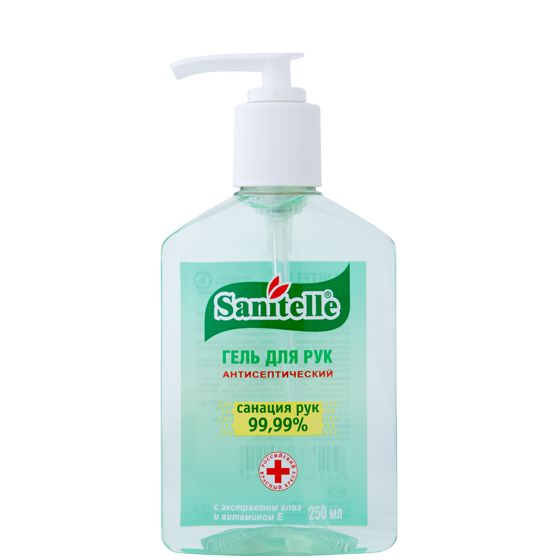|
 We believe that antiseptics hand make our lives easier and protect against many diseases. Is this true? And we do not lose in the pursuit of purity of your health? We believe that antiseptics hand make our lives easier and protect against many diseases. Is this true? And we do not lose in the pursuit of purity of your health?
Malicious bacteria and viruses surround rights everywhere. They thrive in the hands of a friend, pribolevshy SARS, handrails on public transport and even on the surface of the powder, or your favorite lipstick. Their presence threatens us with a bouquet of various diseases, faced with which we, for obvious reasons, do not want to. In the role of panacea manufacturers offer antiseptic, but before you buy the next miracle remedy, study its composition and possible side effects.
The composition and efficiency of facilities
The composition gels, sprays or antibacterial impregnation napkin includes such substances as
Triclosan hlorgeksidinabiglyukonat, triclocarban, ethyl alcohol, phenoxyethanol, parabens.
The ratio of the concentration of these ingredients in the vehicle determines its effectiveness.
For example, the alcohol in a concentration of more than sixty percent of the average for thirty seconds, which corresponds to the time the complete evaporation from the skin of hands, kills 99, 9% of known microbes including viruses, gram-positive and gram-negative bacteria, fungi candida.
But phenoxyethanol only effective against mold and yeast fungi and certain Gram-negative bacteria.
The nuances of the application of antiseptics
The problem: abuse of power
The hands of the person, in addition to harmful bacteria, fungi and other organisms that live in the same ones that form a natural microflora. Their presence, we are not only useful but also vital. Antibacterials can not act selectively. Not distinguishing between beneficial and harmful bacteria, they destroy both categories. Regular use of antiseptics violates the microflora.
The problem: reduce the effectiveness of antibiotics
Malicious bacteria develop immunity to the antiseptic. For this reason, antibiotics penicillin, hloramfenikolistreptomitsin open in the middle of the twentieth century and who saved millions of human lives, there is little effective. About 70% of bacteria resistant to these vidamantibiotikov.
The problem: Security
Many components that protect against bacteria and viruses do represent a risk for us.
So, phenoxyethanol can be an agent provocateur of vomiting and diarrhea in infants. This means that if the mother will use antibacterial wipes, and then take the baby in his arms and touch his toys, which he usually plays, she can give him a sufficient amount to ill health phenoxyethanol.
Phenoxyethanol, sodium benzoate and other parabens accumulate over time in the body, causing allergic reactions, provoking the development of diabetes. And even if you carefully study the composition of the antiseptic, avoiding the purchase of products with parabens as active substances of the above side effects you are insured still will not. Parabens such as phenoxyethanol and sodium benzoate may be included in the production in small amounts as a "preservative."
Daily use of funds from chlorhexidine, which is positioned as a "gentle" preservative may contribute to discoloration of the skin of hands, the appearance of itching, dermatitis and sensitization to ultraviolet.
The problem: the excess of the permissible norms
To best protect a person from the side effects of antibiotics, in our country set up special regulations, the purpose of which - to adjust the allowable concentration of each of antiseptics in production.
Thus, the alcohol content in the product should not exceed 68%.
The maximum number of sodium benzoate in the means of 700-1500 mg / l.
The concentration of parabens shall be between 0 and 4% of the solution volume.
But not all manufacturers produce products in accordance with the regulatory framework. Has made a rating of proven techniques.
Sanitelle, hand sanitizer
Active ingredient - 66, 2% ethyl alcohol. It contains moisturizers - Aloe Vera and Vitamin E. It softens skin, leaving a feeling of freshness after use.

Kleenex Protect, antibacterial wipes
Active ingredients: benzalkonium chloride, sodium benzoate, methylisothiazolinone. Without alcohol content. Thanks humidifiers Aloe vera and shea butter skin care for hands, leaving no stickiness.

Aura, wipes with antibacterial effect
Active ingredients: methylparaben, phenoxyethanol, ethyl paraben, triclosan. It does not contain alcohol. Cleanse and soften the skin, providing protection from harmful bacteria.

Salfeti, wet wipes
Active ingredients: sodium benzoate and phenoxyethanol. Preserves the natural pH balance of the skin, refresh and give a feeling of cleanliness.

Cleanberry, hand sanitizer, "Classic"
Active substance: 67, 8% ethyl alcohol. It is used to protect your hands from harmful bacteria. Low-allergenic.

Four problems - one solution
Numerous studies scholars say that antibacterial agents should be used with caution. Use antiseptics only in cases of urgent need. Alternatively, use ordinary soap.
"Long live the soap fragrant! "- Said Roots Chukovsky, and he was absolutely right. To be healthy enough to wash your hands under running water with ordinary soap.
Author: Natalia Bartukova
|
|
|
|
|
|
|